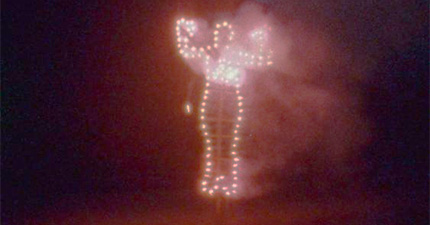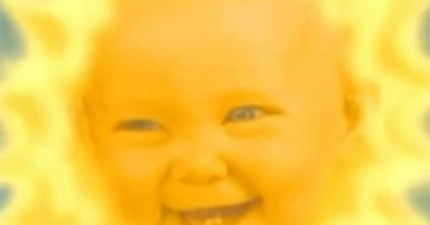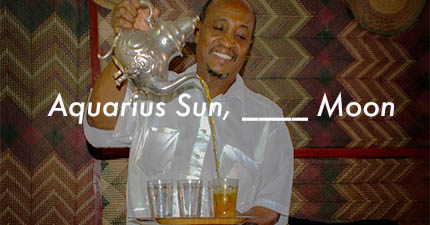I’ve often wondered at what JK Rowling’s actual relationship to astrology is. A lot of the sun signs of her character make sense. Fred and George are quintenssential Arieses and Hermione is such a Virgo. However, JK Rowling doesn’t just do sun sign astrology. In the Divination classes that Harry and Ron take in their third to fifth years, we get to learn a lot more from astrology, that Lavender Brown has an unaspected Uranus, for example, and that a square of Mars and Saturn puts one in danger of burns.
We know that astrology is deeply important to the wizarding world. Instead of birthdays, the Ministry of Magic issues ID cards based on astrological Sun and Moon and the Daily Prophet has a longstanding horoscope column.
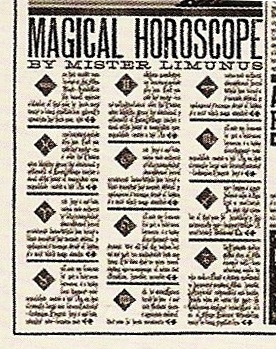
A deeper read into books four and five actually provide us with three different ethos of astrology. While many characters describe Divination in general as a “woolly” subject little easter eggs hidden in the text imply that astrology has a far more serious meaning in Harry Potter than it appears on the surface.
Trelawney’s mundane predictions
Part of why astrology seems like a silly subject for silly girls in the books is due to Harry’s machismo. We only see the world through Harry’s eyes and, when he sees the passion Lavender and Parvati have for astrology, he is put off by it. Not only that but Trelawney’s preoccupation with predicting Harry’s death makes him upset and paranoid.
Trelawney introduces astrology to her fourth year class in the following passage:
“My dear, it is time for us to consider the stars,” she said. “The movements of the planets and the mysterious portents they reveal only to those who understand the steps of the celestial dance. Human destiny may be deciphered by the planetary rays, which intermingle…”
Whatever more Trelawney has to say, we don’t get to hear it because Harry starts to space out. But he comes back to class when Trelawney begins to address him directly:
“I was saying, my dear, that you were clearly born under the baleful influence of Saturn,” said Professor Trelawney, a faint note of resentment in her voice at the fact that he had obviously not been hanging on her words.
“Born under—what, sorry?” said Harry.
“Saturn, dear, the planet Saturn!” said Professor Trelawney, sounding definitely irritated that he wasn’t riveted by this news. “I was saying that Saturn was surely in a position of power in the heavens at the moment of your birth…Your dark hair…your mean statue…tragic losses so young in life…I think I am right in saying, my dear, that you were born in midwinter?”
“No,” said Harry, “I was born in July.”
So, let’s talk about Trelawney and how she sees and uses astrology. One thing is clear—Trelawney uses a very human centric and mundane form of astrology. She uses astrology to predict the happenings of mundane facts of life on earth. Moreover, she sees the astrologer’s role in the middle of all of this as someone who is situated to have a special understanding of the cosmos and, thus, predict daily events.
And Trelawney is good at this! Most of her predictions, including who will die, come true. In the fourth book, she’s obsessed with predicting Harry’s death but that’s because there’s someone at Hogwarts who is trying to kill him. In the fifth book, she tells him that what he’s dreading will happen sooner than he thinks and this is the book in which Sirius dies. She also predicts Dumbledore’s death at a dinner party.
However, because most of Trelawney’s predictions either don’t happen right away or are so mundane, no one really takes her seriously.
In the passage that makes Harry skeptical about astrology, the one where Trelawney tries to predict his birthday, we do get to see her weak points with astrology. Because she is so used to being ridiculed for what she does she clearly has an insecurity which she tries to cover up by forcing her worst predictions down people’s throats. In fact, in her class, we hear a lot about the malefics Mars and Saturn but hardly anything about beneficial transits.
So, Trelawney makes a hasty prediction without even looking at Harry’s birth chart against his consent because she thinks that he’s not listening to her (which he isn’t). And she guesses that, because of the Saturn-like aspects of his life, that he must be born with Saturn in rulership of Sun. And she’s wrong.
It’s funny because, if you look at Harry’s actual birth chart, you can see clearly that Saturn does, in fact, occupy a prominent position in his chart. It squares an opposition of Venus and Neptune while sextiling a trine of Uranus and Mercury. Depending on Harry’s birth time, it may also oppose his moon.
Trelawney bases her conclusion off of mostly physical characteristics that she observes in Harry, his shortness and his dark hair. I’d add that his myopia is also a Saturnian characteristic. However, astrology has never supposed the Sun to be an indicator of physicality. For that, it’s always been the rising sign, the moon, or the ruler of the rising sign. The Sun has always been associated with spirit which has an abstract and non-physical form. If we can assume that Harry has a morning birth, then we can also assume that Saturn opposes his moon! This would make his short stature and dark hair make sense.
Moreover, Saturn plays a huge role in Harry’s life. He has huge daddy issues that he deals with in all of the books and has a huge store of both good and bad father figures, including Lupin, Arthur Weasley, Snape, Sirius, and Dumbledore. We can see this in his chart because Saturn makes both harmonious and unharmonious aspects. He has extremely intense relationships to Sun in Capricorn males, which include both Snape and Voldemort. Based on Harry’s relationship with Saturn, we can safely say that Saturn has shaped his life in a decisive way.
From this, we can see that Trelawney’s fatal flaw as an astrologer is that she has trouble separating the mundane uses of astrology from the spiritual. Because of the ways in which other people marginalize her in the school, she has come to sacrifice a broader understanding of planetary influences for the immediate and only slightly satisfying daily prediction. When interacting with Harry, she wants to desperately to “get it right” that she loses a rich understanding of Saturn through father figures to an incorrect guess of simple Sun sign rulership.
Most of Trelawney’s predictions, which vague in subject matter, are precise in date for this reason. She knows that something will happen on the sixteenth of October to Lavender but, because she doesn’t feel secure enough in her position as a seer to open up a dialogue with Lavender, she doesn’t actually know what will happen or can give advice in understanding life’s changes.
2. Firenze’s non-human centric astrology
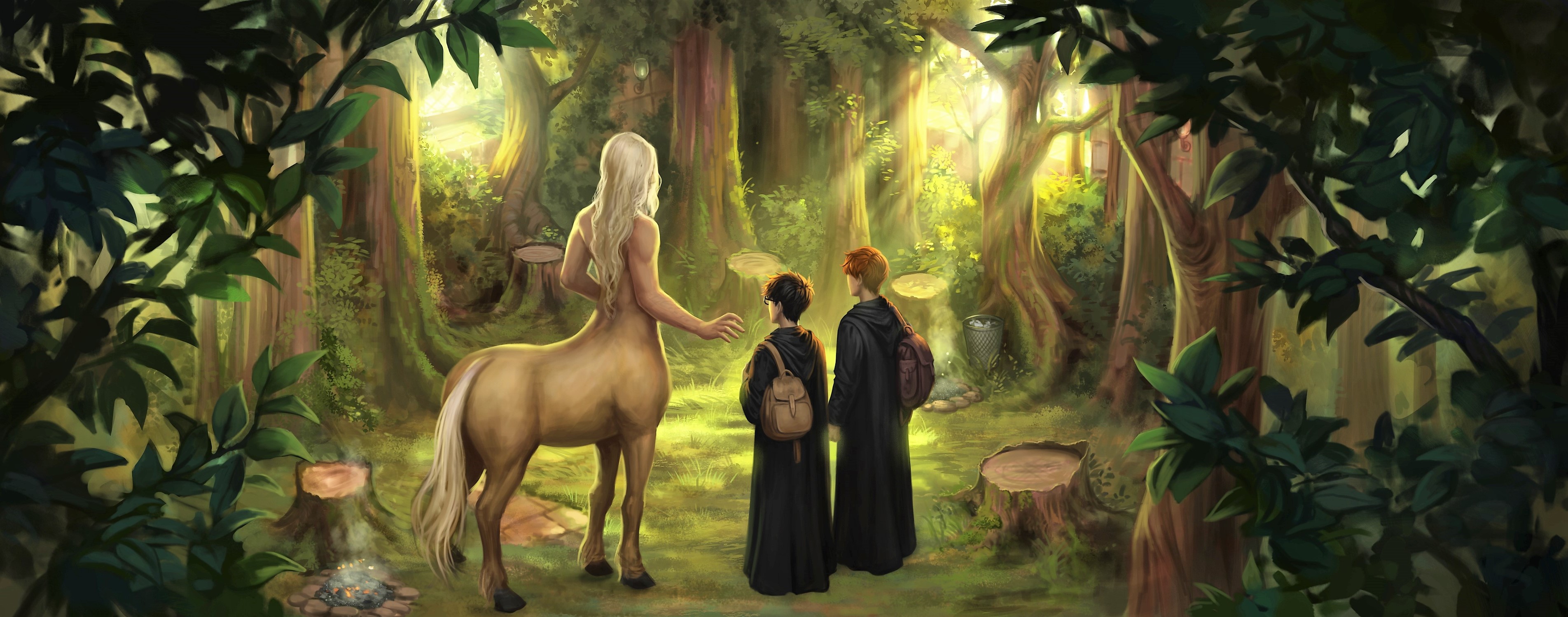
When Trelawney is sacked by Umbridge in book five, Dumbledore replaces her in the school with Firenze, a centaur living in the Forbidden Forest. And Firenze has a lot to say about Trelawney’s relationship with astrology.
“I know that you have learned the names of the planets and their moons in Astronomy,” said Firenze’s calm voice, “and that you have mapped the stars’ progress through the heavens. Centaurs have unraveled the mysteries of these movements over centuries. Our findings teach us that the future may be glimpsed in the sky above us…”
“Professor Trelawney did Astrology with us!” Said Parvati excitedly, raising her hand in front of her so that it stuck up in the air as she lay on her back. “Mars causes accidents add burns and things like that, and when it makes an angle to Saturn, like now” —she drew a right angle in the air above her— “that means that people need to be extra careful in handling hot things.”
“That,” said Firenze calmly, “is human nonsense.”
Parvati’s hand fell limply to her side.
“Trivial hurts, tiny human accidents,” said Firenze, as his hooves thudded over the mossy floor. “These are of no more significance than the scurryings of ants to the wide universe, and are unaffected by planetary movements.”
“Professor Trelawney—“ began Parvati, in a hurt and indignant voice.
“—is a human,” said Firenze. “And is therefore blinkered and fettered by the limitations of your kind.”
Harry turned his head very slightly to look at Parvati. She looked very offended, as did several of the people surrounding her.
“Sibyll Trelawney may have Seen, I do not know,” continued Firenze, and Harry heard the swishing of his tail again as he walked up and down before them, “but she wastes her time, in the main, on the self-flattering nonsense humans call fortune-telling. I, however, am here to explain the wisdom of centaurs, which is impersonal and impartial. We watch the skies for the great tides of evil or change that are sometimes marked there. It may take years to be sure of what we are seeing.”
Firenze pointe to the red star directly above Harry.
“In the past decade, the indications have been that Wizard-kind is living through nothing more than a brief calm between two wars. Mars, bringer of battle, shines brightly above us, suggesting that the fight must break out again soon. How soon, centaurs may attempt to divine by the burning of certain herbs and leaves, by the observation of fume and flame…”
It was the most unusual lesson Harry had ever attended. They did indeed burn safe and mallow sweet there on the classroom floor, and Firenze told them to look for certain shoes and symbols in the pungent flames, but he seemed perfectly unconcerned that not one of them could see any of the signs he described, telling them that humans were hardly ever good at this, that it took centaurs years and years to become competent, and finished by telling them that it was foolish to put too much faith in such things anyway, because even centaurs sometimes read them wrongly. He was nothing like any human teacher Harry had ever had. His priority did not seem to be to teach them what he knew, but rather to impress upon them that nothing, not even centaurs’ knowledge, was foolproof.
There is a marked contrast between how Firenze uses astrology with how Trelawney uses it. Part of this appears to be because, while Trelawney was situated within an academic institution and relied on some kind of statistical prediction to make herself credible, Firenze resided in a forest and outside of the institution. Thus, while Trelawney makes her living predicting smaller events that do not threaten the status quo, Firenze takes one look at Mars’ condition and speaks of war.
This is especially relevant because the fifth book is the one where no one believes what Harry and Dumbledore have to say about Voldemort’s return. It’s a book where our heroes must active work against the status quo. Firenze’s broader view of the cosmos doesn’t just interest Harry because of it’s expansiveness—it also validates what no one will believe. It speaks of war.
One thing that seems like a weak point for Firenze is his utter and complete disregard for down to earth events. Firenze uses astrology to make grand philosophical gestures that are unattached to actual events. It gives him the ability to speak of things that no one else is allowed to, to talk about the events of the day abstractly without mentioning Voldemort by name when it is taboo to do so, but it also makes him a bit apolitical.
While Firenze claims that the scurrying of ants are unaffected by planetary influences, he then allows the class to read planetary movements through the seemingly random movements of smoke. The logic behind this would be astrology’s old maxim of “as above, so below.” Because the planets are metaphors for everything, from the grandest of schemes to the most seemingly insignificant disappointing of fumes, we can read everything as a metaphor for divination. Firenze seems ready to talk about patterns of fate in the biggest of scale and the smallest but hesitant to speak of how they may impact the day to day.
For the rationale behind this, we must keep in mind that, as a centaur, Firenze is a marginalized person in the Harry Potter universe. The centaurs’ territory has been steadily cut down again and again. The entire wizarding world, not just Voldemort’s lot, has suppressed centaurs for years.
It makes sense that Firenze would be politically unattached to defending either Dumbledore’s side or condemning Voldemort’s side. What does it matter to him? He’s not going to speak out against a fringe right wing when the majority of wizards already marginalize him. And because centaur astrology has developed as a marginalized practice, the abstract nature of their predictions also protect them from being charged with anything overtly treasonous.
3. Harry’s accidental prediction
In the fourth book, right before Hermione comes into the common room talking about SPEW, Harry and Ron are doing their Divination homework. Their homework is to make a summary of how planetary movements will affect them for the next month. Feeling foggy headed with all the work that Trelawney has assigned them in terms of calculations and interpretations, Harry and Ron decide to just make things up.
They’re getting really into it, making up all sorts of misfortunes and scrapes, when Ron suggests:
“Why don’t you get stabbed in the back by someone you thought was a friend?”
“Yeah…cool…” said Harry, scribbling it down, “Because Venus is in the twelfth house.”
When Harry makes this prediction, it just so happens that, within the next month, someone who he thinks is a good friend (Mad Eye Moody) will attempt to kill him by writing his name down and entering it into the Goblet of Fire. And Venus in the twelfth house is such a good summary of the ways that Barty Crouch Jr., pretending to be an ally, is actually up to no good.
Moreover, due to the timing of Harry’s prediction, we’re actually able to figure out a credible rising sign for Harry Potter. Since Harry is figuring out his transits for the month of October in this passage and, in October, Venus would likely be traveling through Libra and Scorpio, we can say that Harry’s rising sign is either Scorpio or Sagittarius. This puts his prominent Saturn right at the top of his chart, possibly conjunct his Midheaven.
Because Harry’s natal Venus also squares Saturn and opposes Neptune, we could then say that this false friend is a father figure and, because of Harry’s vulnerability with father figures, that he doesn’t always exercise the best judgment with them. We would then be able to look for shifty behavior from older males with whom Harry has a connection.
I kind of screamed when I saw this passage in a rereading of the fourth Harry Potter book because it’s just such a good example of how, when we’re really not trying to make an accurate prediction, we happen to make good predictions. Harry is also goaded into doing predictions this way by Ron, who is a Pisces and very intuitive accidentally. If Harry had a better balanced understanding of astrology, it’s possible that he could have better understood the type of danger he was in.
4. Lavender Brown’s Peregrine Uranus
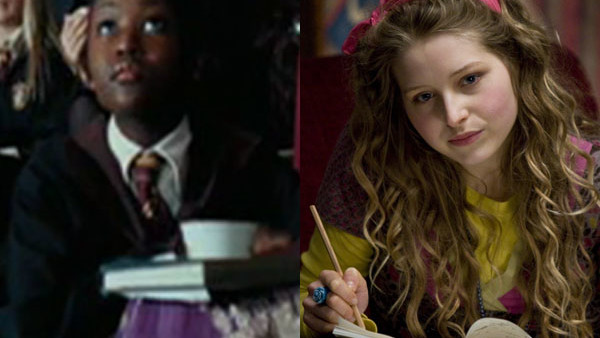
Okay, so the use of Uranus, Neptune, and Pluto in Harry’s Divination class feels bizarre. Since Hogwarts has no electricity, life seems to function in a long past England. Pureblood families also seem aristocratic. The wizarding world feels a lot older than it actually is, because it doesn’t use modern technology. However, it does use aspects of modern astrology. In the fourth book, Trelawney attributes Pluto to disturbances.
But Harry’s actually going to school in the 1990s. Thus, Trelawney teaches a her own mixture of traditional and modern astrology.
The astrological meanings of Uranus, Neptune, and Pluto were not settled until the 1970s and some could say that their influences are still incredibly loosely defined today. When Trelawney sums up Saturn’s influence for Harry, it sounds like she’s quoting a medieval or Renaissance era astrologer, not a modern one. However, because she tries to incorporate the modern planets Uranus, Neptune, and Pluto into her framework without exploring a more modern astrology.
We lack textual evidence for how Lavender may have interpreted her peregrine Uranus but we do know a bit about Lavender from the books. From Harry’s point of view, we can always rely on Lavender to overreact to almost anything. We see her shrieking and squealing over what Harry finds unimportant. Lavender’s feminineness seems especially annoying when she takes up most of Ron’s attention in the sixth book. Because Harry has such as bad relationship with publicity, he sees her need for attention as particularly annoying.
The thing is, Lavender does take up the role of being an unusual person or an outsider more than we’d expect from Harry’s observations. In the fifth book, she claims to not believe the evidence of Voldemort’s resurrection but joins Dumbledore’s Army anyway. In the third book, she’s the only pureblood witch to not know what the grim is. In the first book, she’s the first of Harry’s whole cohort to be sorted by the Sorting Hat. In the last book, she’s bitten by a werewolf.
Lavender is the person who initiates her whole generation into their social groups, being the first to be sorted. It’s unexplained why she doesn’t know what the grim is, despite being being a pureblood. It’s unclear what her politics are in the fifth book and she seems to be completely comfortable in being the normative one in a revolutionary group or a revolutionary one in a normative group. After her studies, she must learn to live the rest of her life as a werewolf.
It’s possible that, because she sees herself as being so normal, that Lavender has trouble incorporating her own strangeness into her personality. It’s hard to tell because we know so little about her character. It’s also interesting to note that Lavender was one of the few black characters in Harry Potter until the sixth movie, in which she was recast as a white character due to her getting her own love story. Something about this trajectory feels a bit Uranian.
5. What was Firenze talking about with Mars anyway?
The first time Harry meets Firenze, he’s talking about seeing Mars in the sky. From the timing of his descriptions, we might assume that Mars is a metaphor for Voldemort.
However, Voldemort was a Capricorn and, from Harry’s chart at least, he seems to play a Saturn figure in the story. It’s possible that Firenze, when talking about Mars, is not talking about the dangers of the Dark Lord but the personal struggles that Harry will have to go through. It’s possible that Firenze was treating Mars as a metaphor for Harry.
From Harry’s own calculations of Venus in the month of October, we could guess that he’s either a Scorpio rising or Sagittarius rising. I’m going to go out on a limb here and guess that Harry is a late Scorpio rising, because of all the times that Firenze mentions Mars. This would still make his Midheaven Virgo and conjunct Saturn since he is born in the northern hemisphere.
Firenze’s preoccupation with Mars having to do with wars that span decades doesn’t make a lot of sense, since Mars transits are on the shorter side. However, if we can let go of a transitory reading of Mars, his descriptions start to make a lot more sense.
When Harry meets Firenze for the first time in the fall of 1991, he would have been going through a Mars return in his twelfth house (assuming he’s using whole sign houses). The beginning of his fifth year, Harry goes through another Mars return. The two times in which Harry sees Firenze and hears him talk about war and Mars, Harry has been approaching or has just gone through a Mars return.
James Potter happens to be an Aries with Mars as the ruler of his Sun and Lily Evans an Aquarius with Saturn ruling her Sun. From Harry’s parental dynamic comes another relationship between Mars and Saturn, which is something that we see over and over again. What Firenze may have been remarking on is not a transitory movement of Mars but a genealogical reading of it, knowing closely how Mars works not only within Harry’s own chart with within his own family history.
